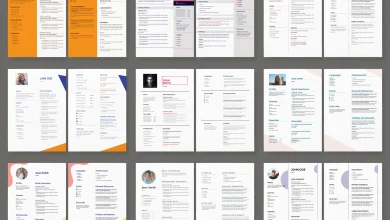Understanding the Brook Taube Wells Notice: What You Need to Know

Introduction to the Brook Taube Wells Notice
Welcome to the world of finance where transparency is key and compliance is crucial. Today, we delve into the intriguing realm of Brook Taube Wells Notices – a topic that can spark curiosity and concern in equal measure. So, buckle up as we navigate through the ins and outs of this enigmatic notification that can have significant implications for those involved. Let’s unravel the mystery of Brook Taube Wells Notice together!
What is a Wells Notice?
A Wells Notice is a formal notification from the Securities and Exchange Commission (SEC) indicating that they are considering recommending enforcement action against an individual or entity. The notice typically outlines the alleged violations and provides the recipient with an opportunity to respond before any final decisions are made.
Receiving a Wells Notice can be a stressful experience as it signals potential legal proceedings ahead. It is not an accusation of wrongdoing, but rather a warning that regulatory authorities have concerns about possible violations of securities laws.
Individuals or entities who receive a Wells Notice should take it seriously and seek legal counsel promptly to understand their rights and options for responding. It is important to provide a thorough and compelling response to address the allegations effectively.
Understanding what a Wells Notice entails is crucial for anyone involved in securities transactions or investments, as it signifies regulatory scrutiny that could have significant implications.
History and Purpose of the Wells Notice
The history of the Wells Notice dates back to the early 1970s when the Securities and Exchange Commission (SEC) introduced this formal notification process. The purpose behind issuing a Wells Notice is to inform individuals or entities that the SEC staff is considering recommending enforcement action against them.
This preliminary notice allows recipients an opportunity to respond before any final decisions are made by the SEC. It serves as a way for those involved to present their side of the story, provide additional information, or argue against potential charges being brought forth.
Over time, the Wells Notice has become an essential part of regulatory investigations in ensuring fairness and transparency in the securities industry. It signifies a crucial step in due process and offers a chance for dialogue between parties involved in potential enforcement actions.
Who Receives a Brook Taube Wells Notice?
If you find yourself in the financial industry, particularly as an investment advisor or broker, you might be wondering who exactly receives a Brook Taube Wells Notice. Well, typically individuals or entities under investigation by the U.S.
S. Securities and Exchange Commission (SEC) may receive such a notice. It serves as a warning that the SEC staff is considering recommending enforcement action against them.
Receiving a Wells Notice can be nerve-wracking and stressful for those involved as it signifies that the SEC has gathered enough evidence to potentially pursue legal action. The notice outlines allegations and provides recipients with an opportunity to respond before any formal charges are brought forward.
Recipients of a Wells Notice must act promptly and seek legal counsel to navigate this complex process effectively. This involves understanding the allegations, gathering relevant information, and preparing a robust response to address the SEC’s concerns accurately.
What to Do If You Receive a Wells Notice
Receiving a Wells Notice can be unsettling, but it’s essential to remain calm and take prompt action. Carefully review the notice and understand the allegations against you. Next, seek legal counsel from professionals experienced in securities laws to guide you through the process.
Upon receiving a Wells Notice, it is crucial to cooperate fully with any investigations initiated by regulatory authorities. Respond promptly and provide all requested documentation or information accurately.
Maintain open communication with your legal team throughout the proceedings. Stay informed about deadlines and adhere to all requirements outlined in the notice.
Remember that receiving a Wells Notice does not necessarily mean guilt; it is an opportunity to present your side of the story effectively. By following these steps diligently, you can navigate through this challenging situation with confidence.

Potential Outcomes of a Wells Notice Investigation
When facing a Wells Notice investigation, the potential outcomes can vary significantly. One possible outcome is that the SEC may decide not to pursue any enforcement action after reviewing the information provided in response to the notice. This could result in no further action being taken against you or your firm.
On the other hand, if the SEC determines that there are violations of securities laws or regulations based on their investigation, they may choose to move forward with enforcement actions. This could lead to civil penalties, fines, and sanctions being imposed.
It’s important to note that receiving a Wells Notice does not automatically mean guilt or liability. It simply indicates that the SEC is considering taking action and allows you to respond before any formal charges are brought against you.
Navigating a Wells Notice investigation can be complex and stressful, but seeking legal guidance and cooperating fully with regulators can help mitigate potential negative outcomes.
Conclusion
Understanding the Brook Taube Wells Notice is crucial for individuals who may find themselves amid a securities investigation. By being aware of what a Wells Notice entails, who might receive one, and how to navigate the process if you do receive one, you can better protect your rights and interests. Remember to seek legal counsel if you are served with a Wells Notice to ensure that you are properly represented throughout the investigation. Stay informed and proactive when dealing with regulatory inquiries to safeguard your reputation and financial well-being.




